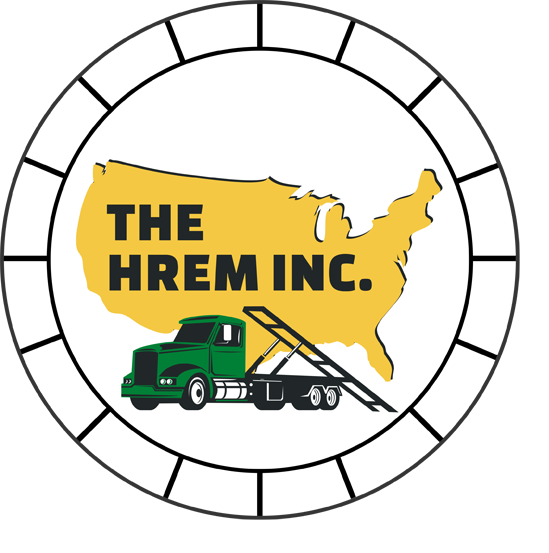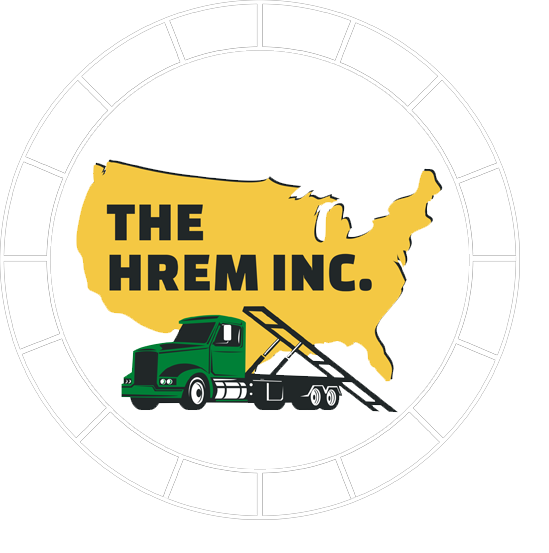
The Cost of Owning and Operating a Roll Off Truck: A Comprehensive Guide
Owning and operating a roll off truck is a significant investment for any business in industries like waste management, construction, or industrial transportation. However, the expenses go beyond the initial purchase price. From maintenance to fuel costs, understanding the full cost of owning a roll off truck is crucial for making informed financial decisions. This comprehensive guide breaks down every aspect of the cost structure, helping you assess the long-term implications of your investment.
Initial Purchase Cost of a Roll Off Truck
The initial price tag of a roll off truck is one of the most substantial investments your business will make.
New Roll Off Trucks
A brand-new roll off truck can cost anywhere between $100,000 to $200,000, depending on the manufacturer, features, and size. Trucks that come with advanced hydraulic systems or additional customizations tend to be on the higher end of this range.
Factors Affecting the Price of New Trucks
- Brand Reputation: Well-known manufacturers often command higher prices due to their reliability and customer service.
- Customization: Custom-built trucks tailored to specific business needs may cost more.
- Capacity and Size: Larger trucks with greater weight capacity will naturally be more expensive.
Used Roll Off Trucks
Buying a used roll off truck can significantly reduce the initial cost, with prices ranging from $50,000 to $100,000, depending on the truck’s age, condition, and usage history.
Benefits and Risks of Buying Used
- Lower Upfront Costs: A used truck can save you up to 50% of the cost of a new one.
- Potential Hidden Costs: While the price may be lower, you might face higher maintenance and repair costs in the long run due to wear and tear.
- Depreciation: Used trucks have already gone through the most significant depreciation period, meaning you’re likely to retain more of the truck’s value if you resell it.
Financing Options for Roll Off Trucks
Because of the high cost, many businesses choose to finance their roll off truck purchase. Understanding financing options is crucial to managing your cash flow.
Loan Options
Many banks and financial institutions offer loans for purchasing heavy equipment like roll off trucks. Loan terms typically range from 3 to 7 years, with interest rates between 4% to 10%, depending on your creditworthiness and the lender.
Pros of Loans
- Ownership: Once the loan is paid off, you own the truck outright.
- Flexibility: Loans provide flexibility in choosing the truck you want without being tied to leasing conditions.
Cons of Loans
- Higher Upfront Costs: Most loans require a down payment of around 10% to 20% of the truck’s cost.
- Interest Payments: Over time, interest payments can add up, increasing the total cost of the truck.
Lease Options
Leasing a roll off truck is another financing option, particularly for businesses that want to minimize upfront costs. Lease agreements can last anywhere from 2 to 5 years.
Pros of Leasing
- Lower Upfront Costs: Leasing typically requires a smaller down payment compared to buying.
- Option to Upgrade: At the end of the lease, you have the option to upgrade to a newer model.
Cons of Leasing
- No Ownership: You don’t own the truck at the end of the lease unless you have a lease-to-own agreement.
- Mileage and Usage Restrictions: Some lease agreements limit how much you can use the truck, which could be a hindrance in high-demand situations.
Maintenance and Repair Costs
Maintaining your roll off truck is an ongoing cost that should be factored into your overall budget. Regular maintenance is essential for ensuring the truck operates efficiently and avoiding costly breakdowns.
Routine Maintenance Costs
Routine maintenance includes oil changes, hydraulic system checks, and tire replacements. On average, you can expect to spend about $5,000 to $10,000 per year on maintenance for a roll off truck.
Common Maintenance Tasks
- Oil and Fluid Changes: Regularly changing the oil, hydraulic fluids, and brake fluids is crucial for keeping the truck running smoothly.
- Tire Replacements: Heavy-duty tires are expensive, costing around $500 to $1,000 per tire. Tire replacement frequency depends on your usage and terrain.
- Brake and Suspension Checks: Given the heavy loads roll off trucks carry, frequent brake and suspension checks are necessary to ensure safety.
Unexpected Repair Costs
In addition to routine maintenance, you should also budget for unexpected repairs. The average repair cost for roll off trucks can range from $1,000 to $15,000 depending on the severity of the issue.
Common Repairs
- Hydraulic System Repairs: Malfunctions in the hydraulic system can be costly, with repairs ranging from $5,000 to $15,000 depending on the complexity.
- Engine Overhauls: If your roll off truck experiences engine issues, an overhaul could cost up to $10,000.
Fuel Costs
Fuel is another major operating expense for roll off trucks. The average roll off truck gets about 5 to 8 miles per gallon, depending on the load and driving conditions. Fuel costs vary based on the region and type of fuel, but diesel fuel is commonly used for these heavy-duty vehicles.
Estimating Fuel Costs
For a business operating a roll off truck that drives around 10,000 miles per year, fuel costs could range from $10,000 to $20,000 annually, assuming an average diesel price of $3.50 per gallon.
Fuel Efficiency Tips
- Regular Maintenance: Keeping your truck well-maintained improves fuel efficiency.
- Driver Training: Training drivers to adopt fuel-efficient driving habits, such as reducing idle time and avoiding aggressive driving, can reduce fuel consumption.
Insurance Costs
Owning a roll off truck requires commercial vehicle insurance, which can be a significant expense depending on the truck’s usage, location, and coverage level.
Average Insurance Costs
Insurance for a roll off truck can range from $8,000 to $15,000 per year. Factors influencing this cost include the value of the truck, your business’s driving record, and the type of coverage.
Types of Insurance
- Liability Insurance: Covers damage to other vehicles or property in case of an accident.
- Comprehensive Coverage: Covers non-collision-related damage, such as theft or vandalism.
- Collision Coverage: Covers damages resulting from accidents.
Depreciation and Resale Value
Depreciation is an inevitable cost when owning a roll off truck. On average, a new truck will depreciate about 20% in the first year and 10% annually thereafter.
Factors Affecting Depreciation
- Usage: The more you use the truck, the faster it depreciates.
- Condition: Trucks that are well-maintained tend to retain their value better.
- Market Demand: Fluctuations in demand for roll off trucks can impact the resale value.
Maximizing Resale Value
To maximize the resale value of your roll off truck, keep up with regular maintenance, avoid unnecessary wear and tear, and maintain comprehensive service records. Trucks with detailed maintenance histories generally command higher resale prices.
Additional Operating Costs
Aside from the major expenses outlined above, there are other operating costs to consider when owning a roll off truck.
Licensing and Registration
Most states require commercial vehicles like roll off trucks to be registered annually. Registration fees can range from $500 to $1,500, depending on the truck’s weight and your location.
Permits
Depending on the type of materials you’re hauling, you may need special permits for transporting waste or hazardous materials. Permit fees vary by region and can add up to several hundred dollars annually.
The cost of owning a roll off truck goes far beyond the initial purchase price. Businesses must account for ongoing expenses like maintenance, fuel, insurance, and depreciation. By carefully considering all these factors, you can make a more informed decision about whether buying or leasing a roll off truck is right for your business. Additionally, proactive maintenance and cost-saving strategies can help you get the most out of your investment.
